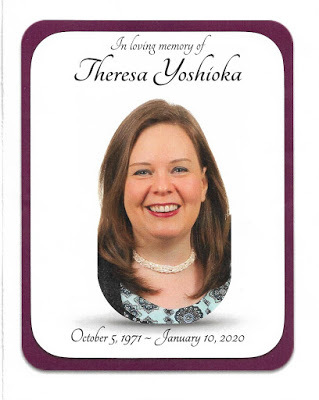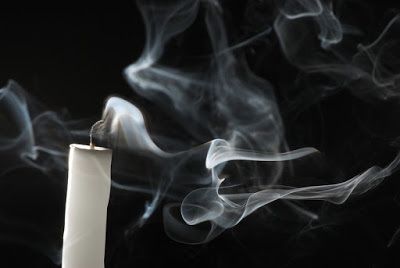Stephen Roney's Blog, page 258
February 3, 2020
Iowa Prediction

Iowa caucuses are today. Let me make a fool of myself by making a prediction.
I expect a Bernie Sanders blowout. I expect that Biden will underperform.
I base this largely on the fact that the caucus process is complicated and rewards organization on the ground. This favours the more committed.
Two other candidates who may do surprisingly well are Andrew Yang and Tom Steyer. Yang’s followers also have a high level of enthusiasm. Steyer has the money to buy organization, and may benefit as a broadly unobjectionable alternative when Biden or others fail to gather enough votes.
We shall see,,,
'Od's Blog: Catholic and Clear Grit comments on the passing parade.
Published on February 03, 2020 12:58
Advice for the New Canadian Tory Leader
 The possible result
The possible resultScott Gilmore of MacLean’s has offered 10 helpful suggestions that, he maintains, would “guarantee” the next leader of the Conservative Party of Canada a win.
Never take advice from an adversary. They will not vote for you anyway, and they do not have your best interests in mind.
Gilmore’s ten suggestions:
1. “Stop fetishizing rural Canada”
2. “Be Canadian.”
3. “Understand demographics”
4. “Have some shame”
5. “Respect parliament”
6. “Believe in climate change”
7. “Believe in free markets”
8. “Believe in individual liberty”
9. “Have a plan to share”
10. “Want to be prime minister”
And, unnumbered, but inserted at the end: “Ovaries.”
It should be obvious from the subheads that Gilmore is not about helping the Conservatives; these are just thinly disguised criticisms.
“Stop fetishizing rural Canada.” Eerily echoing the classic “when did you stop beating your wife?” “Fetishizing” is not a neutral term.
The Conservatives do appeal more to people outside the largest urban centres, with significant caveats: they blow out the other parties in Calgary and Edmonton, both among Canada’s largest metro areas. In Quebec, they do best in Quebec City. They often dominate the suburbs of Toronto. The current mayor of Toronto, like the last one, is a Tory. If, then, there is a rural/urban split, it may be more a Liberal than a Tory problem.
It is also hard to believe that the Conservatives do not want more votes from the cities. Are they really “fetishizing” rural voters at the expense of such an appeal? Gilmore would need to give evidence of where and how this is so.
Grant for the sake of argument that the Tories seem to pay more attention to rural concerns than either the Liberals or the NDP. If the Tories too concentrated on the cities, where would that leave the rural voters and their concerns? Is it really good for democracy if all the parties are saying the same thing and favouring and ignoring all the same groups?
“Be Canadian.” Suggestion two accuses the Conservatives of not being a national party, of caring only for the West. This is the same criticism the Tories level at the Liberals: that they are not a national party, having no representation in either Alberta or Saskatchewan. The Tories have no representation in Newfoundland or PEI; but these are smaller provinces. Regionalism is a standard and longstanding Canadian problem, affecting all parties. It would be great if one of them could unite the country. A feat last accomplished by Stephen Harper.
But the same issue arises here as with the urban/rural divide: if both the Liberals and Tories tend to favour Ontario and Quebec, and neglect the West, is that really better? And is it better to take this matter out of the hands of voters?
“Understand demographics.” This is the stock appeal to youth: “Be the party of the next generation, not just our grandparents’ generation.” It presupposes that young people are as a body further to the left than older people, and they will remain on the left as they age. Both premises are dubious. There are indications that the youngest among us are starting to buck the politically correct dogmas of their elders. Political pendulums swing, and not being sensitive to that can be a good way to march yourself right off a cliff. Ask the UK Labour Party.
There are also lots of indications that the average person moves rightward in their politics once they start a family, assume a mortgage, and get more skin in the social game.
This second factor gains more significance in a time when we are not reproducing at replacement level. And, as someone has observed, people with conservative values tend to have more children. Over time, all else being equal, the centre of political gravity is at least as likely to shift to the right.
“Have some shame”? This is a call for honesty in politics. Which is a good point for all politicians, certainly not just Tories, and increasingly important. Yet this is an argument against the rest of the points Gilmore is advancing: it is an argument against tacking and trimming one’s ideological principles for electoral gain.
It seems to me that the tendency to do so is what held Scheer back in the last election. Sincerity and consistency is what is giving Sanders his surge over Elizabeth Warren. In the current climate, with social media catching you out when you prevaricate, it is better to own your beliefs.
It would be especially effective against Justin Trudeau, who now comes across to most Canadians as deeply insincere.
“Respect parliament.” This too speaks to a real problem. The Canadian parliament has become a monkey show unbefitting a democracy. It is a national disgrace. However, it is the Liberals who created the problem, by giving Chretien as leader the power to reject candidates he did not like. This makes the party leader a dictator over their caucus. Unfortunately, the same disease has infected the Conservatives. But it is clearly not as bed; for Andrew Scheer was forced out rather easily. It is also Michael Chong, on the Conservative side, if as a private member, who has tried to rectify this imbalance.
“Believe in climate change.” Besides the appeal to dishonesty—one should not choose one’s beliefs for electoral advantage, but on the evidence—this is even bad advice in electoral terms. The Liberals, NDP, and Greens are all in on climate change, competing over who can sound most extreme. Even if a majority of Canadians support strong government measures here, that majority is therefore split three ways. The Conservatives, by holding back, are in a much stronger position if this becomes the key issue in an election.
The same problem is seen again here as in so many of Gilmore’s proposals: it would leave the three major parties—four, counting the BQ—holding the same position on an issue on which there is considerable room for disagreement, leaving Canadians disenfranchised.
Besides the anti-democratic effect, this is a formula for unrest. It was the same sense of being denied a choice, over Charlottetown and Meech Lake, that led to the rupture of the Progressive Conservatives a generation ago. It was the same sense of being denied a choice that led to Brexit. Heck, it was the same sense of being denied a choice that led to the American Revolution.
“Believe in free markets.” This is cynical, claiming that the Tories must not believe in free markets if they do not support a carbon tax. Whatever the merits of alternative proposals, a carbon tax imposed to alter the market forces is not a free market solution. The free market approach would be to leave it to consumers if they want to pay extra for “green” products. Some clearly will.
“Believe in individual liberty.” The Tories according to Gilmore care too much about “who I sleep with, what I smoke or what gender I choose.” But that is the Tory position: they do not care about such things. They do not want to raise these issues. They do not want the government involved. It is the left that has been raising these issues. It is also the left that has been aggressively infringing on individual liberty over the years on each of them: now you MUST march in pride parades, you MUST cater gay weddings, you MUST use whatever pronouns a transgender demands, you MUST NOT smoke, you MUST NOT vape, and so forth.
“Have a plan to share”: i.e., release a clear and detailed platform. I think this, at least, is good advice for Tories. Not that voters care that much about the details of a platform. But otherwise they are inevitably going to be accused of having some “hidden agenda.”
“Want to be prime minister.” In other words, abandon all Tory principles, or you will lose.
So much for Gilmore’s call for sincerity. I think he is right there, and so wrong here. People are not so easily conned as they once were.
The trick is that you have to stand up and defend your beliefs. This was Reagan’s secret, and Margaret Thatcher’s, and Bernie Sanders’, and Winston Churchill’s. That is what we have leaders for.
“Ovaries”: in a healthy, egalitarian, non-sexist society, it should be anathema to make one’s sexual organs a qualification for office. But even in practical terms, how well did it go for the Tories last time they tried that gimmick? Kim Campbell—worst defeat in Canadian history. How well did that go for the NDP? Compare how Audrey McLaughlin or Alexa MacDonaugh did electorally with Ed Broadbent, before them, or Jack Layton, after them. How well did it go when the REpublicans chose Sarah Palin as VP candidate? How well did it go for the Democrats when they chose Geraldine Ferraro? Worst presidential defeat since 1936. How well did it go when they chose Hillary Clinton as their nominee?
It is usually a gimmick, usually involving advancing some woman beyond her level of competence just because she is a woman. Voters know it is a gimmick, and tend to recoil. They are not the stupid rubes the commentariat thinks them to be.
My own advice for the next Tory Leader:
1. Speak French.
2. Lean libertarian as ground on which Tories can unite and appeal to new voters.
3. Be sincere.
4. Defend your views aggressively with the press.
5. Try a moderately disruptive tone rather than smiling conciliation. Tap the populist discontent.
'Od's Blog: Catholic and Clear Grit comments on the passing parade.
Published on February 03, 2020 09:19
February 2, 2020
Blessed are Those Who Mourn

Blessed are those who mourn
For they shall be comforted.
I attended another funeral yesterday. There have been many funerals recently.
The chief mourner, the husband, my good friend, Alan, spent most of his eulogy apologizing for his “self-pity” over the premature death of his wife. She died age 49 of breast cancer.
It seems to me our modern emphasis on the supposed joy of the Christian life has left us crippled at such times. Sorrow to us silly pseudo-pentecostals now suggests a lack of faith.
“We are Easter people,” we insist, “and Hallelujah is our song!”
But this is not true Christianity. This is the Christianity of placidly smiling plastic saints, social harmony above all moral values, and gentle Jesus meek and mild. This is the Christianity of the Hallmark card. It has always repelled me.
On a trip to Athens and Sofia once, I explored in turn museums of classical sculpture, then of Christian icons. The contrast was dramatic, between the ghoulish rictus grins of many pagan figures, and the somber looks of the Christian saints.
 The "archaic smile" on a sphinx.
The "archaic smile" on a sphinx.T.S. Eliot’s poem “The Journey of the Magi” captures the emotional tone of his own conversion to Christianity:
“this Birth was
Hard and bitter agony for us, like Death, our death.
We returned to our places, these Kingdoms,
But no longer at ease here, in the old dispensation,
With an alien people clutching their gods.
I should be glad of another death.”
W.H. Auden, speaking of his conversion in the “Christmas Oratorio,” writes:
“To those who have seen
The Child, however dimly, however incredulously,
The Time Being is, in a sense, the most trying time of all.”
To be a real Christian is to be deeply disturbed by the world as it is, and deeply disturbed with ourselves as we are.
Calvinists might be joyful, being assured of ultimate salvation. Yet this same theological certainty predestines the vast majority of mankind, so far as I can see, to eternal damnation, through no actual fault of their own. Could a decent man be joyful over this?
 Mater Dolorosa
Mater DolorosaFor the rest of us, the task is as St. Paul put it to us: we are to “work out our salvation in fear and trembling.” We are not going to measure up. If we get complacent, we are doomed.
Hallelujah people?
Love is not a victory march
It’s a cold and broken hallelujah.
Love by its nature requires a broken self. "That’s how the light gets in."
And if we do not mourn at this world, we are callous souls.
Consider the words of the “Salve Regina”:
“Hail, holy Queen, Mother of mercy, our life, our sweetness and our hope. To thee do we cry out, poor banished children of Eve: to thee do we send up our sighs, mourning and weeping in this valley of tears.”
Blessed, therefore, are those who mourn. There are not a lot of gags in Christianity.
It is not that the world is evil, in itself. It is not that we are utterly depraved. It is that, once we have seen the Beatific vision, we must realize how far short both we and it have fallen.
Should we not therefore see the death of a good person as cause for celebration? We celebrate saints on their death days, not their birthdays—on the day they entered eternal life.
Theresa Yoshioka was, by all accounts, a good person. She was a devout Byzantine Catholic.
As she was dying, and knew she was dying, as her husband wept at her bedside, she turned to him, he says, and asked, in apparent wonder, “Why are you crying?”
But her husband was right to cry, too. To cry with all abandon. Sorrow itself is holy. As Yeats summed up the human condition, “Man is in love; and loves what vanishes.”
This deep truth is the beginning of wisdom.

'Od's Blog: Catholic and Clear Grit comments on the passing parade.
Published on February 02, 2020 14:41
Do Not Go Gentle into That Good Night
 Gerald Van Luven Roney Jr. 1931-2020.
Gerald Van Luven Roney Jr. 1931-2020.My father just died, at the age of 88, after a long life. It puts me in memory of one of my favorite poems, in terms of its sound qualities, Dylan Thomas’s villanelle:
Do not go gentle into that good night,
Old age should burn and rave at close of day;
Rage, rage against the dying of the light.
Though wise men at their end know dark is right,
Because their words had forked no lightning they
Do not go gentle into that good night.
Good men, the last wave by, crying how bright
Their frail deeds might have danced in a green bay,
Rage, rage against the dying of the light.
Wild men who caught and sang the sun in flight,
And learn, too late, they grieve it on its way,
Do not go gentle into that good night.
Grave men, near death, who see with blinding sight
Blind eyes could blaze like meteors and be gay,
Rage, rage against the dying of the light.
And you, my father, there on the sad height,
Curse, bless, me now with your fierce tears, I pray.
Do not go gentle into that good night.
Rage, rage against the dying of the light.
I find the sentiments of the poem perverse. Thomas is expressing his own anger, not his father’s.
Old age should not rage at death; far better to depart on terms of peace.
But a death at any age can feel untimely, if there is a sense of business unfinished.
It is an anger I now feel.
'Od's Blog: Catholic and Clear Grit comments on the passing parade.
Published on February 02, 2020 13:48
Coronavirus Update
Coronavirus is looking worse than it was when I posted on it some days ago.
It is one thing when the Chinese government takes draconian measures; that may be political. But other countries are now imposing a quarantine on China: Japan, Russia, Italy, the US, Australia, all have shut their borders to people coming from China. Australia has evacuated its own nationals, not to Australia proper, but to Christmas Island for quarantine. It sounds as though their own medical advisors are alarmed.
At the same time, as I did not at first realize, and others also may not, we do not know yet how deadly the disease may be. The fatality rate looked like less than 2%, but that is deceptive. Because the virus is so fast-moving, the great majority of cases at any given time have not run their course. So we cannot just compare the ration of infections to deaths. When we look at the ratio of deaths to recoveries, we are looking at something more like a 50% fatality rate. The final truth could be anywhere between those two figures.
Because the virus is unusually infectious, health facilities could also become swamped, as seems to have happened in Wuhan, so that people go untreated.
It is beginning to look as though this will be a major disaster for China, at least.
'Od's Blog: Catholic and Clear Grit comments on the passing parade.
Published on February 02, 2020 06:04
February 1, 2020
The First Beatitude
 Nirvana
NirvanaBlessed are the poor in spirit, for theirs is the Kingdom of Heaven.
This is the first of Jesus’s Beatitudes, in which he identifies those to whom his good news is addressed.
Who are the poor in spirit?
The word “nirvana” the goal of all Buddhists, literally means the snuffing out of a candle. The flame of the candle represents desires. The whole program of Buddhism is to overcome your desires. Your coveting, your lusts.
The Buddhist “Four Noble Truths” are equivalent to the Christian Beatitudes. The proper title is “The Four Truths of the Noble Ones.”
1. Existence is full of suffering.
2. This is caused by desire.
3. Eliminating desire eliminates suffering.
4. There is a path to eliminate desire.
St. Paul uses the same fire image when he says “It is better to marry than to burn.” Fire here = lust, desire.
A bad person is perhaps, at base, someone who cannot control their desires, but must always indulge them. Both we and the Buddhists refer to this as “selfishness”; the “self” is the thing that desires. Self=desires. We use the pseudo-scientific term “narcissism” to express the same thing.
And this, a general inability to control desires, may condemn the narcissist therefore to “the eternal flames.”
It may be an image similar to the classical one of Tantalus, who always sees a banquet just beyond his reach.
The Buddha uses the image of a house on fire.
It is the curse of the bad man, the narcissist, to always have unsatisfied desires, for in the end, the world cannot be enough. And so he surrenders himself to the flames.
Luke’s begin more plainly, “Blessed are the poor.” In speaking of the “poor in spirit,” we cannot therefore drift too far from the image of literal poverty. It cannot simply mean, for example, the humble. That is covered elsewhere—“blessed are the meek.” It cannot mean the sad; that is covered by “blessed are those who mourn.”
Surely it means, to live as though you were poor, regardless of your actual wealth. Which is to say, to restrain and control your desires, as the literally poor are obliged to do.
The literal poor are blessed, perhaps, because they are forced to learn how to do this.
'Od's Blog: Catholic and Clear Grit comments on the passing parade.
Published on February 01, 2020 06:34
January 31, 2020
Gay Pride and the CPC
Saw a disturbing CBC “Power and Politics” panel on the issue of Tory leadership candidates marching in gay parades. Four panelists; with only Stockwell Day to speak for the Tories. The position one panelist kept repeating, to apparent general agreement, is that this was obligatory or else the politicians were declaring themselves “homophobic.” A more or less direct quote: “it is not enough to show tolerance. You must show that you support and celebrate Gay Pride.”
An odd standard, as Day observed, to apply in other circumstances. Do we really consider politicians who do not regularly attend Yom Kippur celebrations anti-Semitic? Are we now going to?
This new conflation of tolerance with approval is alarming in many ways. If tolerance has no value, and only celebration and support counts, we will only tolerate what we celebrate. This is the most extreme form of intolerance. All views with which you disagree would be silenced.
In the present case, what is not being tolerated is Christians, Jews, Muslims, Buddhists, religion, or ethical codes in general—a lot of targets. Celebration, as opposed to tolerance, of “gay pride” is intolerance of all these groups.
Essentially all religious and moral traditions teach that homosexual acts are sinful; but that is even beside the point. All teach that pride and lust are sinful. “Gay Pride” parades are celebrations of pride and lust, at least as explicitly as they are celebrations of homosexual attraction.
Any believing member of any of these religions, or of any other established moral code, cannot in good conscience march in a gay pride parade. Requiring this is excluding them from public life.
It is, perhaps more alarmingly, excluding anyone who sincerely follows any established morality from public life. This is a guarantee of the worst government available.
In sadly only too related news, we see a general furor over obscure leadership candidate Richard Decarie, and demands, including by prominent Conservatives, that he be barred from the race. Because he stated publicly that being gay is a choice.
He said some other things, as well, all perfectly unobjectionable, but this is the one the headlines have fixed upon.
Yet “being gay” self-evidently is a choice, in the most basic sense. While I may and may not have a choice concerning who sexually attracts me, I obviously have a choice as to whether or not to have sex with them. Otherwise, there could be no objection to rape.
Being “gay” is obviously a choice in another sense as well. If not, why do gays themselves speak of a “gay lifestyle”? There is an element of choice in being “gay,” in the minds of “gays” themselves. “Gay” does not equate to “being attracted to members of the same sex.”
As to whether one chooses to be attracted to those of the same sex—that too is unclear. We do not know, and it is deceitful to insist that we do. As recently discussed in this space, the traditional view, right up to Freud, is that we can control and are therefore fully responsible for our lusts.
We live in an increasingly intolerant age.
'Od's Blog: Catholic and Clear Grit comments on the passing parade.
Published on January 31, 2020 06:36
January 30, 2020
The Ninth Commandment--and the Tenth
 A noble knight of God confronts the Seven Deadly Sins.
A noble knight of God confronts the Seven Deadly Sins.“You shall not covet your neighbor’s house. You shall not covet your neighbor’s wife, or his male or female servant, his ox or donkey, or anything that belongs to your neighbor.”
This passage is awkwardly split into two commandments in the traditional Catholic, Lutheran, and Jewish formulation. This requires a bit of rewriting:
9. You shall not covet your neighbour’s wife.
10. You shall not covet your neighbour’s goods.
The argument for this is that otherwise you are classifying spouse as a belonging, which is wrong—not just to us moderns, but to traditional Jewish thought.
On the other hand, this would seem to condemn the same sin, “covetousness,” twice.
But one covets a person in a special way. The Hebrew word here can mean either “covet” or “lust.” One does not lust after Lamborghinis.
So it is two sins, lust and covetousness. You shall not lust after another’s wife or husband; you shall not covet anything that belongs to another.
Most interesting about these two commandments is that they presuppose the ability to control our desires. They are saying the desire is sinful, regardless of the action.
This goes against current received wisdom, which holds that desires and urges are like the weather; we can only control whether we act on them or not.
And the modern teaching, thanks to Freud, is that we should indeed whenever possible act on them. Otherwise we are repressed. And will no doubt over time go mad.
Yet we also know this is not true, if we stop and think for a moment.
Because, after all, we hold people responsible for “hate,” and punish them for it. When we marry, we vow “to love and to cherish.” Obviously, we could not do so if we thought the ability to love or cherish was out of our control.
No doubt it takes discipline to learn not to lust, not to envy. It takes discipline to be moral in general. Emotions can be addictions, and grow worse if we indulge them.
Developing good character is a matter of fighting such addictions.
'Od's Blog: Catholic and Clear Grit comments on the passing parade.
Published on January 30, 2020 13:32
Eat Chinese, You Racist!
I suppose it was inevitable. The coronavirus scare has now been declared to be racist, at least by Global News.
Global does not give a lot of details on the supposed racism; they feature a political cartoon showing a rat looking ill, captioned “Welcome to the Year of the Rat.” If there is racism in that, they do not explain it. It seems that it is now racist to even vaguely associate the coronavirus with China, even though it began there, and almost all of its victims, so far, are there.
 Supposedly racist cartoon by the Toronto Sun's Sue Dewar.
Supposedly racist cartoon by the Toronto Sun's Sue Dewar.
They cite as “ignorant” and “misinformation” suggestions they find on social media that the virus is a product of Chinese food.
Of course, it is a product of Chinese food. According to the authorities, at least, the virus crossed over to humans from exotic food animals in the Wuhan wet market.
Ignorance? Misinformation? It is Global News that seems to be spreading misinformation. By the nature of the beast, social media works against this, by improving the information flow.
The striking thing is that the legacy media still do not seem to have figured this out. The news is the last to hear the news.
The core evidence of racism in the story, the core complaint, their lede, seems to be that business is down in Canadian Chinatowns. People are avoiding them for fear of the virus.
Problem: avoiding Chinatowns is probably sensible. It is obviously more likely that, in Chinatown, you could encounter someone who has recently been to China. And so, the risk of catching the virus is greater. Tough for the Chinatown businesses, but the virus is tough on a lot of businesses.
Global News’s report is giving poor health advice. “Visit Chinatown, make a point of eating there, or you are a racist.” Racism, real or imagined, is more important to them than the public health.
Worse, the report identifies common sense as racist. The obvious corollary: racism is just common sense.
It is hard to believe they are not intentionally promoting racism. I think they are, at a minimum, racist in their own thinking. As someone once wisely said, if you keep hearing dog whistles, you must be the dog.
'Od's Blog: Catholic and Clear Grit comments on the passing parade.
Published on January 30, 2020 06:42
January 29, 2020
Eighth Commandment: People of the Lie
 Lucas Cranach the elder.
Lucas Cranach the elder.“Thou shalt not bear false witness against thy neighbour.”
In the World English Bible translation:
“You shall not give false testimony against your neighbor.”
The Catholic Church understands this as a prohibition against lying. Strictly speaking, it seems to refer only to perjury, to lying in a legal case. However, given that it was originally presented to a people wandering in the desert, court proceedings were probably different from, and far less formal than, we would be familiar with. There was probably little difference between a court case and any other dispute among parties.
A couple of chapters later, the Book of Exodus seems to elaborate:
Exodus 23
“Do not spread false reports. Do not help a guilty person by being a malicious witness.
“Do not follow the crowd in doing wrong. When you give testimony in a lawsuit, do not pervert justice by siding with the crowd, and do not show favoritism to a poor person in a lawsuit.”
These seem to cover instances in which people might otherwise suppose they are telling a “white lie,” a justifiable lie, not covered by the commandment.
The prohibition extends to malicious gossip. It extends to helping people by lying as well as harming them with one. It includes favouring the supposedly disadvantaged, as many modern governments and current judges seem inclined to do. See, for example, Canada’s “Gladue reports.”
It seems best, therefore, to take the commandment to indeed be referring to lies in general, so long as they involve material consequences. “Polite lies” would be exempt, just as would be jokes, fiction writing, dramatic performances, showmanship, and Donald Trump’s tweets.
Most interesting is the inclusion of the warning not to side with or follow the crowd. We might not automatically see that as lying. Many if not most people seem to hold the opinion that whatever “everybody says” or “everybody knows” is truth.
The prohibition here suggests that, to the contrary, anything “everybody says” should be presumed to be a lie.
And the warning is repeated: “do not follow the crowd”; “do not pervert justice by siding with the crowd.”
And you are as morally responsible if you do not assume this as if you had made up the lie yourself.
'Od's Blog: Catholic and Clear Grit comments on the passing parade.
Published on January 29, 2020 06:29



